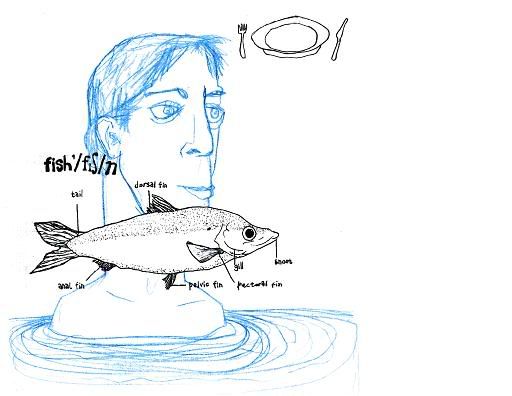A true story about apathy
My friend Oren from back home in Israel is a short and tightly built Peter Pan boy with a sharp nose and sharp black eyes whose face hadn’t changed or aged one bit since the day I’d met him at fifteen. During a time in our youth when I’d precariously decided to plunge myself into writing a novel of all things, with no outline or goal or lighthouse to guide me, Oren sat in my room wearing the white t-shirt that was a staple of his teenage wardrobe and asked “Still writing?” I said yeah, I was even on to my second chapter.
“Freestyle, huh?” He said, and it sounded so exciting and poetic coming from his lips that I became certain it was not the right word for describing the mumblings I was committing to paper. My adolescent writing was free, true enough; free of criticism and free of thought and free of planning, but there was no style to it.
Oren made himself some coffee, he took it without sugar as a matter of principle, and told me he was sure he’d lost the ability to feel anything. He’d gone numb. He was no longer happy, he said, but he wasn’t unhappy either. He wasn’t depressed, but he wasn’t not depressed either. “I’m indifferent.” He said.
“And that depresses you?” I asked.
“It bums me out a bit, but only a little bit.” He said, and then let out a fast dying staccato laughter. “You see? I’m just a little bummed, nothing serious.”
He summed up his entire life in a melancholic tone; he’d achieved nothing and would most likely never learn how to play a musical instrument. We were both nineteen years old at the time, and so despite my putting forth the best arguments I could articulate to contradict him and cheer him up, deep down inside I’d believed everything he said and then some.
I kept hard at work on my novel, which could be called a novel only by virtue of being too long to be anything else, although a few of my friends dryly noted that it was nothing more than a glorified, prosaic diary. Six months later it was completed and stuffed deep down into a drawer in my childhood room, where it still hides.
“Freestyle, huh?” He said, and it sounded so exciting and poetic coming from his lips that I became certain it was not the right word for describing the mumblings I was committing to paper. My adolescent writing was free, true enough; free of criticism and free of thought and free of planning, but there was no style to it.
Oren made himself some coffee, he took it without sugar as a matter of principle, and told me he was sure he’d lost the ability to feel anything. He’d gone numb. He was no longer happy, he said, but he wasn’t unhappy either. He wasn’t depressed, but he wasn’t not depressed either. “I’m indifferent.” He said.
“And that depresses you?” I asked.
“It bums me out a bit, but only a little bit.” He said, and then let out a fast dying staccato laughter. “You see? I’m just a little bummed, nothing serious.”
He summed up his entire life in a melancholic tone; he’d achieved nothing and would most likely never learn how to play a musical instrument. We were both nineteen years old at the time, and so despite my putting forth the best arguments I could articulate to contradict him and cheer him up, deep down inside I’d believed everything he said and then some.
I kept hard at work on my novel, which could be called a novel only by virtue of being too long to be anything else, although a few of my friends dryly noted that it was nothing more than a glorified, prosaic diary. Six months later it was completed and stuffed deep down into a drawer in my childhood room, where it still hides.


0 Comments:
Post a Comment
<< Home